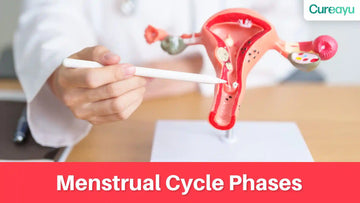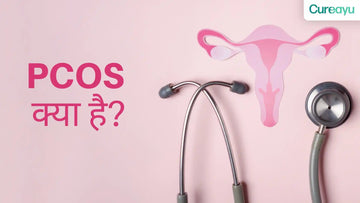Polycystic Ovary Syndrome, or PCOD, is a common hormonal condition that affects women who are fertile and frequently has significant effects on fertility. In addition to irregular menstruation cycles and ovarian cysts, this disorder throws off the delicate hormonal balance that is essential for reproductive health. It also causes metabolic problems. It is crucial to comprehend its causes, symptoms, and available treatments, especially in light of its substantial impact on female fertility and the difficulties it presents for those trying to conceive.
What Is PCOD and PCOS
Polycystic Ovary Disorder is referred to as PCOD, and Polycystic Ovary Syndrome as PCOS. Since they are so similar, they are frequently used interchangeably. Both cause hormone disruption and irregular menstruation. The primary cause of PCOD is ovarian cysts, which can lead to hormone problems and irregular menstruation. Along with other things like excess male hormone that causes acne and hair growth, PCOS includes all of that. However, both can interfere with hormones and make conception more difficult.
Difference Between PCOD and PCOS
Symptoms
- PCOD primarily involves multiple cysts on the ovaries, irregular periods, and hormonal imbalances.
- PCOS encompasses additional symptoms such as excess androgen levels, acne, and hair growth on the face and body.
Also Read: Do You Know the Difference Between PCOD & PCOS
Causes
- PCOD's exact cause isn't clear but is often linked to genetics, insulin resistance, and hormonal imbalances.
- PCOS is associated with hormonal imbalances, insulin resistance, and genetic factors, contributing to symptoms like excess androgen levels.
Treatment
- PCOD treatment may include lifestyle changes, medications to regulate periods and hormones, and fertility treatments if needed.
- PCOS treatment involves similar strategies but may also focus on managing excess androgen levels through medications and lifestyle changes.
Impact on Fertility
- Both PCOD and PCOS can disrupt menstrual cycles and ovulation, affecting fertility.
- PCOS's additional symptoms, such as excess androgen levels, may further complicate fertility by interfering with egg production and implantation.
PCOD: A Significant Cause Of Female Infertility
PCOD stands out as a major contributor to female infertility, primarily due to irregular or absent ovulation. Hormonal imbalances inherent in PCOD significantly disrupt the normal menstrual cycle, creating hurdles in the path to conception. These disruptions not only hinder the release of eggs but also impair the quality and regularity of the menstrual cycle, making it challenging for women with PCOD to achieve pregnancy naturally. The intricate hormonal imbalances characteristic of PCOD not only affect ovulation but also impact the overall reproductive environment, diminishing the chances of successful fertilization and implantation. As a result, PCOD poses substantial challenges for women striving to conceive, necessitating proactive management and fertility interventions to overcome these obstacles.
Symptoms Of PCOD Problem In Females
- Irregular periods or absence of menstruation.
- Excessive hair growth on the face, chest, or back.
- Acne and oily skin.
- Weight gain or difficulty losing weight.
- Scalp-related hair loss or thinning.
- Darkening of skin in certain areas like the neck, groin, or underarms.
What Are The Causes Of PCOD Problem In Women
- A major component is genetics and family history.
- Insulin resistance and elevated insulin levels.
- Hormonal imbalance, particularly involving androgens and insulin.
- Lifestyle issues include stress, bad eating habits, and inactivity.
Is Pregnancy Possible In PCOD and How
- While PCOD can complicate fertility, it's crucial to note that achieving pregnancy is still possible with appropriate management strategies.
- Fertility treatments play a pivotal role in optimizing the chances of conception for women with PCOD. Ovulation induction, a common approach, involves medications to stimulate the ovaries and promote regular ovulation.
- Additionally, lifestyle modifications such as adopting a healthy diet, engaging in regular exercise, and managing stress can positively impact reproductive health and enhance fertility outcomes. Weight management is particularly important, as excess weight can exacerbate hormonal imbalances associated with PCOD.
- In cases where conventional treatments prove ineffective, or if there are severe reproductive challenges, assisted reproductive technologies (ART) like In Vitro Fertilization (IVF) may be recommended.
- IVF offers advanced solutions by retrieving eggs from the ovaries, fertilizing them with sperm in a laboratory setting, and transferring the resulting embryos into the uterus, bypassing some of the obstacles posed by PCOD.
- Thus, while PCOD presents fertility challenges, proactive management and the utilization of various treatment options can offer hope and support for women seeking to conceive.
Also Read: A Comprehensive Guide to Period Pain Relief
What Is The Treatment For PCOD
- Lifestyle modifications including a healthy diet, regular exercise, and stress management.
- Medications to regulate menstrual cycles, lower insulin levels, and reduce androgen levels.
- Fertility treatments such as ovulation induction with medications like Clomid or letrozole.
- Surgical interventions like ovarian drilling in certain cases.
Conclusion
PCOD, being a multifaceted condition, demands a comprehensive approach to management, especially concerning its implications for female fertility. Understanding the intricate interplay of factors contributing to PCOD, such as genetic predispositions, hormonal imbalances, and lifestyle influences, is paramount in developing effective treatment strategies. By delving into the causes, symptoms, and treatment options outlined earlier, women gain invaluable insights into navigating their reproductive health journey. Armed with this knowledge, they can actively engage in proactive measures, including lifestyle adjustments, adherence to medication regimens, and seeking timely medical interventions. Empowered by a holistic understanding of PCOD and its impact on fertility, women are better equipped to make informed decisions, collaborate closely with healthcare providers, and embark on a path towards realizing their aspirations of conceiving and nurturing a family.












